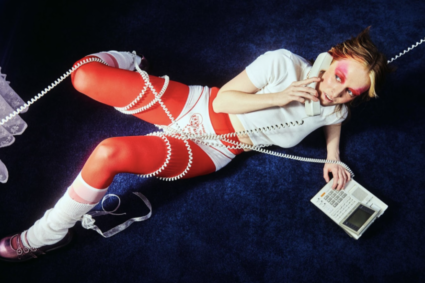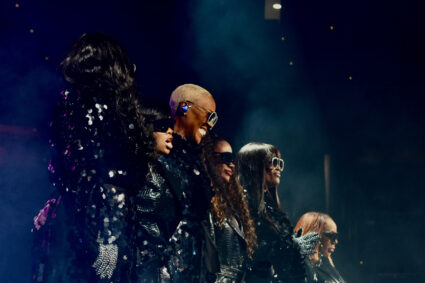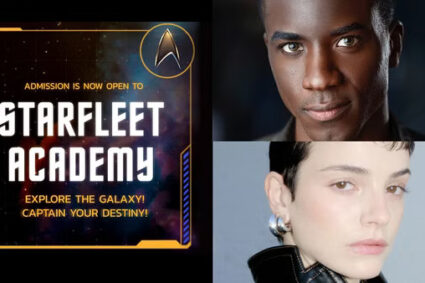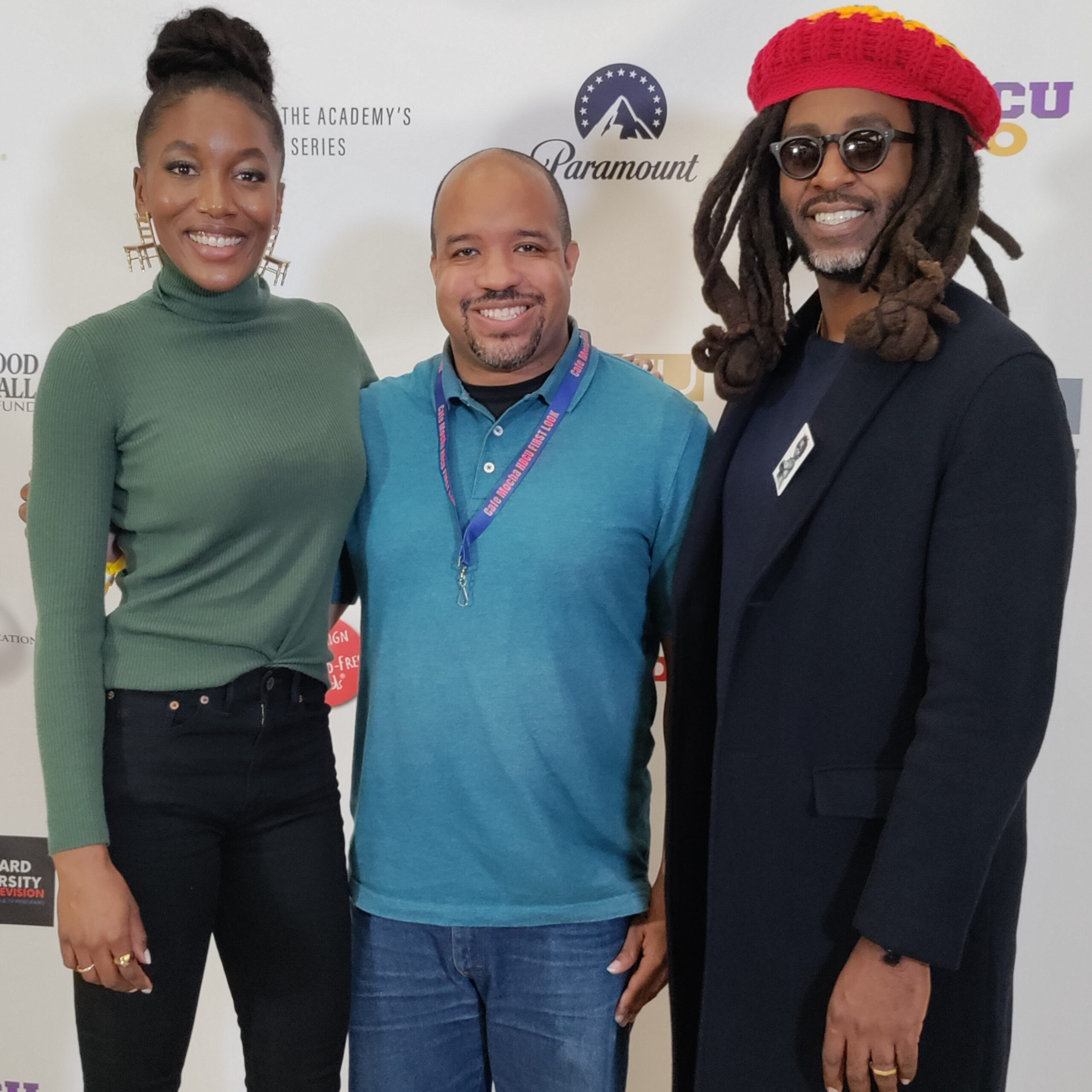
On this edition of THE INTERVUE, We’re at the first the inaugural HBCU First Look Film Festival at Howard University. Today, we are talking to one of the directors and one of the stars of the upcoming series “Lawmen: Bass Reeves” that is currently streaming on Paramount+
This eight-episode anthology series based on the man who was allegedly the inspiration behind The Lone Ranger. Reeves was a man born into slavery, who escaped the Civil War, lived among the Native Americans learning their languages and skills, and went on to become one of the first Black deputy Marshals in 1975, despite racial injustices.
I had the pleasure of talking to Damian Marcano, the director of episodes of four, five and six episodes. And Howard University alumni, Lauren E. Banks who plays the wife of Bass Reeves, Jennie.
First, I want to start with our local HBCU graduate. Lauren, talk to us about the role of Jennie and what got you interested in the role.
Lauren E. Banks (Jennie): Jennie Reeves is the young matriarch of the Bass Reeves family. She is the heartbeat. She is the integral compass of the family, she is the mama bear, when danger comes knocking at the door. What drew me to this role was her. The fact that she was a real person, not a creation of Hollywood. She lived during enslavement, survived it, and then built a life for herself and with along with Bass Reeves during Reconstruction, and in the thriving life, because they had over 10 kids. They had a big family.
It was the opportunity of a lifetime for me as an actor to be able to delve into the dialectical work, the physical work, the weapons and training the horses. I couldn’t have been happier with the people that I got to collaborate with, like this guy here to my left Damian, as a director, and all the other storytellers that were part of it.
Damian, I want you to talk about the summary of directing those three episodes, and working with David, Lauren and the rest of the cast.
Damian Marcano (director): Episode Four, five, & six, are very triumphant episodes, in my humble opinion. One of the things that drew me to the show and the script & those episodes, were the fact that I had been from where I’m from, from Trinidad, from this rock in the middle of the sea, man. Everything I had ever seen about people that look like me, in this country, in that time period, we were somebody’s property, or we were getting our ass kicked. This was different, because we was doing the as kicking.
And that’s four, five and six. We get to see a black man with a gun and a badge and a triumphant story. A man who finally gets to make decisions of his own, based on where his origin stories were. When we first met him, he was owned by someone else, right? He sort of got his own freedom, made a life out of it. And now we see the man who he’s become. But we also started to explore the things like the weight of the badge and the fact that sometimes he has to arrest very people that look just like him.
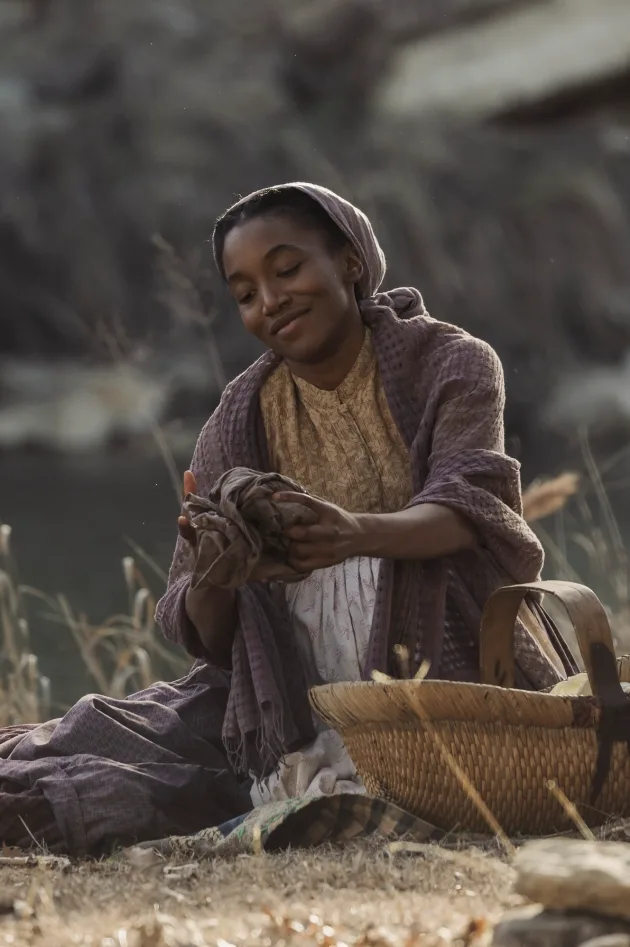
Lauren, what is one facet about Jennie that surprised you as you stepped into the role?
LEB: I think it’s kind of surprising. She had their first child, Sally Reeves, played by the lovely Demi Singleton, who you saw play Serena in the “King Richard” story. She had Sally very early in life. And so, she and Bass started their family very young, and yet she has all of this responsibility.
It’s a very interesting balance between the young woman that is Jennie Reeves, who has desires and dreams of her own talents, whether it’s playing the piano or enjoying what freedom looks like for her in a house that she is not property in. Then also, balancing that with the very day to day responsibilities of running a farm and in protecting the animals from wildlife and all the other things that come along with living in so near to Indian Territory, as it was called at that time. There’s a great in a softness to her and it will sneak up on you in the project.
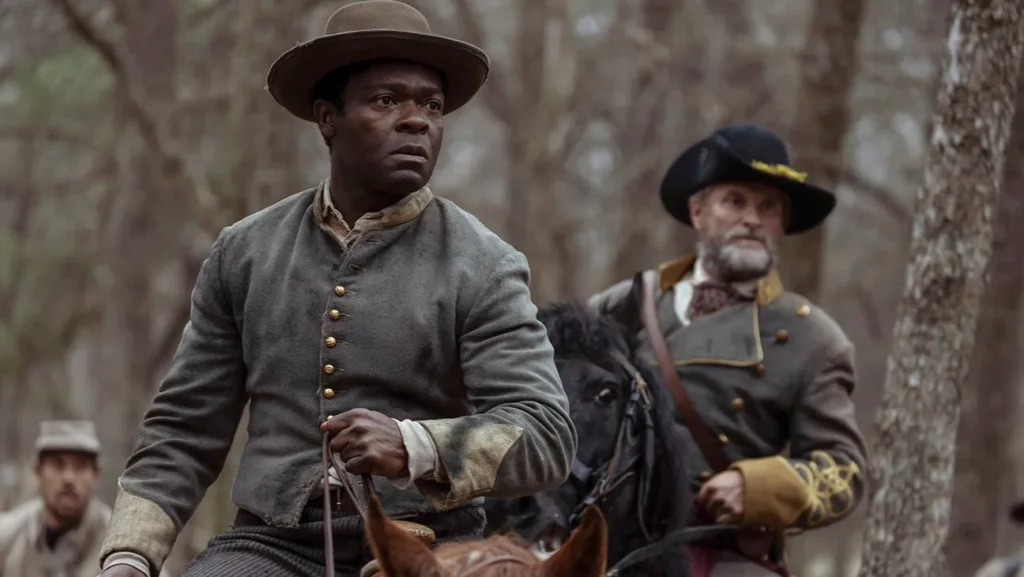
Damian, along the same lines. What were some of the things about Bass’s life that that surprised you?
DM: It all was shocking for me. To be quite honest, there wasn’t anything I learned not just that man. I am an immigrant to this country. So I’ve been given the immigrants version of American history, which is that a bunch of bad stuff happened in the West with a very wide lens. It’s like a bunch of bad stuff happened to one group of people. It was done to them by this other group of people. And then the United States was born. That’s kind of what we get.
So going into this show, and not having done sort of like all the research, I really was just drawn to the story about a man. A man who had this creed. A man who was a faithful, family man and once again, in the 1800s, he was black. Curious, right? I feel in every last bit of it was a 4-D history lesson for someone like me. I went to work every day with an open spirit and the will to learn. I got to work with great people like this lady here to my right and this brother (Justin) over here.
I felt like, “man, we felt like we were in this bubble. Check this Rasta man, you got to learn American history all over again. Its so raw and direct.” I got retaught history.
Alright, Lauren, this feels like a homecoming to you. This is the first project you brought back to HU. What goes through your mind, especially moments ago, when you saw the crowd and they know what the callback immediately… and its home!
LEB: So many things come through my mind. I mean, it truly does feel like yesterday that I was sitting in Blackburn, waiting to hear from whoever was working in entertainment and whatever they might have to say, or nuggets of inspiration, they would leave with me. So, that memory is going through my mind.
I think the joy of being able to bring back something that feels in service of black American history, and something that I know that will be embraced by the wonderful studious and smart students at Howard University, who will be critical. They will looking at it through a global lens of understanding of the diaspora and that matters much to me. I’m very happy to be embraced by a place that I love so much. And that has inspired me to do exactly what I’m doing right now.
Damian, talk about some of the new challenges that you face while filming on location. I understand you were filming in Texas, correct?
DM: Texas was the challenge man. You never been to Texas…
Oh, I’ve been to Texas.
We were about an hour and a half west of Fort Worth. From January to June, you get every bit of weather I’ve ever seen as a human being. Not tornado warnings but tornadoes – a tornado is here. We just need to see if it’s close enough. (laugh) The torrential downpours. The golf ball size hail. You name it, we saw it. So it made us pivot a lot. There were days that we wanted to go do this and we just couldn’t do that.
On top of all of this right, Lauren mentioned this before, just all of the training that all of our performers went through. Like I said, I’m used to directing, I’m used to going on set and essentially – the stallion that’s on set, or the two stallions that I’m dealing with, our number one and number two actors in Hollywood. Insane names and they’re like, “Oh, how are you going to deal with this today?”
David Oyelowo, a stallion himself, but he’s actually riding one. He’s going to give me those lines and he’s going to fire a Winchester rifle while doing it. I was like, “so obviously we’re gonna put his stunt double. We cut them in. This is how we try to do these things so we don’t damage on number ones.” What I can say is David Oyelowo had a brilliant stone performer by the name of Jamal. I don’t want to even downplay how good Jamal is but David didn’t let Jamal do anything the entire season.
He came to work that prepared. They all came so prepared, that every time we were faced with the challenges that was just Texas, it was never a challenge as to where they were as a performer or they couldn’t. I never once had Lauren told me like, “I can’t do this or whatever.” It was just kind of like “so you need me to do this. And you want me to cut it right here. Shoot this right? Okay, cool, and raise all of these kids.”
Lauren, what advice would you give to your fellow Howard Bison as they pursue their dreams through their education, right here at Black Mecca?
LEB: Well, the biggest advice I could say is that art isn’t created in a vacuum. So what does that mean? It means that what is required of you to become a storyteller, whether you’re going to be a journalist an actor, director, writer, is more than just what’s going to happen in the classroom. It does require you to be involved actively on the campus, socially, culturally, politically. Just those experiences are indelible, like they’re incredible and indelible. They have an indelible impression on who you become as a human in the multifaceted nature of your humanity.
And then, you also are here in at Howard and this city also has a lot to offer, in terms of its cultural identity and in complexities right with the international community that is here. I think having both the rich context of the education that you’ll get here, plus, the overall environment that you get at Howard in DC, is going to make you the multifaceted artist that you desire to be.
Then the next thing is call on your alumni. Connect with them and say, “Hey, I would like to assist you for a month or I would like to shadow you for a week.” We are here and we’re happy to support that. I did it and I learned a lot. So I strongly encourage that.
Last question is to the both of you. If you could sum up your experience of filming and presenting this series in one word, what is that one word?
DM: Prideful.
LEB: Service.
See Lauren as Jennie and Damien’s work as a director in “Lawmen: Bass Reeves” – Now streaming on Paramount+
